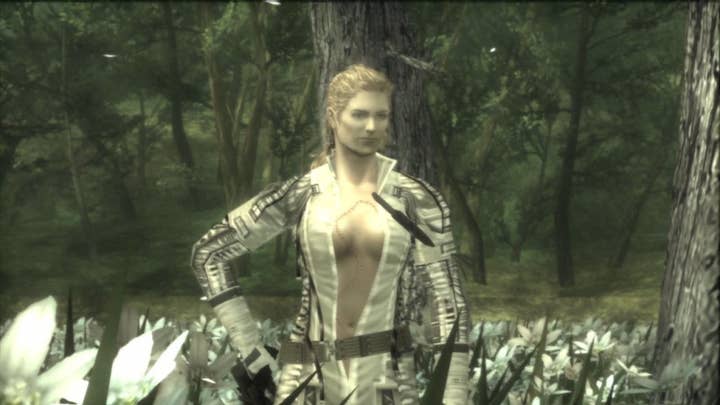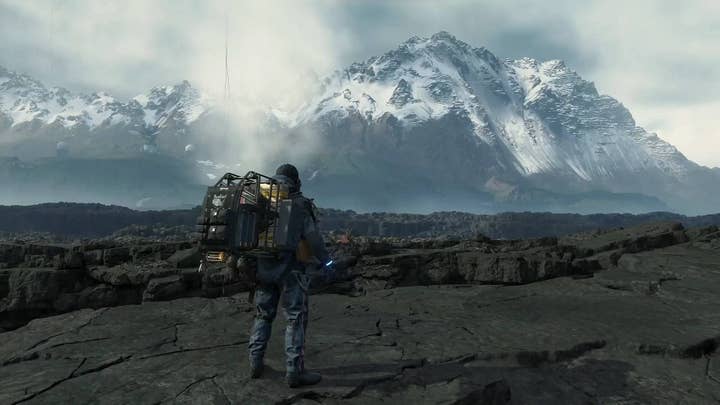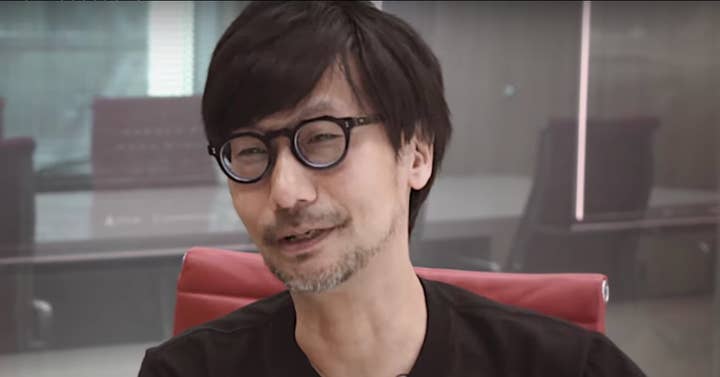Hideo Kojima: The making of a video game auteur
Metal Gear creator's book The Creative Gene explores his inspirations and why risk-averse games lead to stagnation
Hideo Kojima is one of the few world-famous game designers. He's an auteur whose singular creations -- the Metal Gear Solid series and, most recently, Death Stranding -- have become huge blockbusters.
Games are generally credited to development studios, so it is rare for a creator to become a public figure. Kojima has a team to make his games, but the difference is that he directs all aspects of production, everything from story to game mechanics to art design. The result is a unique world that reflects Kojima's interests and eccentricities.
A new translation of Kojima's 2019 book 'The Creative Gene', which released last month, gives insight into his background. It is a collection of essays in which he provides summaries of his favourite books and films and explains his creative philosophy. As you read the book, it becomes clear that Kojima first became an artist and only later brought his ideas into game design.
Kojima formed his own fantasy world as child because he was lonely. He was a latch-key kid whose parents were busy working all hours. He would return home after school and spend most of the evening alone.
"I want players to experience things that are only possible within video games and that have never been done before. Otherwise, there's no point in making them"
"I learned how to improvise a pretend family gathering," he writes. "As soon as I got home, I turned on every light in every room and switched on the TV at high volume - not to watch anything, but to distract from the loneliness. Even in my adulthood, I continue the habit."
He found solace in reading, adding: "Books kept feelings of isolation and loneliness from crushing me." This need was intensified when his father died suddenly of a brain haemorrhage when Kojima was only 13.
"My father's early death contributed to a lack of role models in my life. But inside books, I was able to find adults and teachers to guide me along."
He read widely but developed a particular obsession with science fiction. He devoured the works of Asimov, Clarke, Heinlein, Vonnegut, and George Orwell. These works were exciting because they provided new ways to understand the present and provide warnings for the future. He believes the quality of sci-fi declined in the '80s due to the popularity of Stars Wars, which steered the genre towards commercialism and "stale space operas."
The book provides examples of how his eclectic reading habits influenced the Metal Gear series. Fans will be surprised to learn that the plot of Metal Gear Solid 3 was inspired by an obscure novel about street cats. Jennie (1950) is the story of an eight-year-old boy named Peter who turns into a cat and must learn to survive on the city streets.
"In Metal Gear Solid 3, The Boss confronts the player character, Snake (a stray dog), with a choice: 'Will you live as a dog? Or will you live as a cat?' Subconsciously, I must have been inspired for her character by Jennie. The Metal Gear Solid series had been the story of patricide committed by mercenaries who belong an organisation (in other words, dogs of war). I created The Boss (a mother cat) to bring in the viewpoint of motherhood and stray cats. MGS3 was born from Jennie's meme."

Kojima is a well-known movie buff and has made it clear that film influences the way he creates games. He traces his love of film back to his childhood when foreign films were shown on prime-time TV each day of the week. It is interesting to note that his love of film was aided by a Japanese convention in which a presenter introduced and explained the film to the audience. This helped him to develop a deeper, more analytical understanding of the films.
As a teenager, he began to write his own stories. He started by summarising the books he read and plotting them out like movie scripts, before developing original stories. He looks back at this time with a wry smile.
"The future cannot be created through simple imitation of the memes other people made in the past -- even if from the business standpoint, that might be a safe, low risk method"
"I was in high school, ignorant of the world, and oh so proud of myself for only reading foreign science fiction and mysteries... I looked down on my classmates who were at the mercy of school entrance exams," he writes. "I steadily nurtured my sense of superiority and kept to myself as I wrote stories that would never be published."
In his college years, he wanted to make movies but couldn't find a break. This caused him to enter a deep depression. In an emotional chapter of the book, he describes how [English rock band] Joy Division kept him going during this dark period.
"Joy Division was my silent confidant; Joy Division saved my life. That is why they are so special to me."
Kojima's tortured younger years were valuable though, as it was during his time that he fleshed out his fictional world. After finding no way into film, he saw a "new profession where all that mattered was a person's ability -- the video game business." This was during early years of the industry when big budget games were given more leeway to experiment and get weird. He used this freedom to forge a new role as a video game auteur.
From the beginning his purpose was clear: "The only thing I need to do is create my own world - the world of Hideo Kojima. Sharing that with the rest of the world is my karma."
The book describes how difficult it is to make an original video game. The first problem is to get a project green-lit by corporations that want a safe return on their investment. Kojima complains how companies use a marketing-orientated approach which examines past successes and reuses the elements that made them sell.
"The future cannot be created through simple imitation of the memes other people made in the past -- even if from the business standpoint, that might be a safe, low risk method."
Kojima actually takes this a step further and argues that low-risk business strategies lead to cultural stagnation.
"Just like continuously interbreeding similar genetic material will diminish variety and lead to an evolutionary dead end, memes will not evolve and progress without the introduction of new connections."

Another hurdle is to get the development team to buy into the new ideas.
"They're supposed to be on my side, but sometimes I'm making something because I believe in my heart it will be interesting, and they'll say, 'No one has ever done that before. It'll never work,' or, 'What part of that is interesting?' or, 'You can't do that,' and they'll put on the brakes. But almost nothing is impossible."
He later writes: "I want players to experience things that are only possible within video games and that have never been done before. Otherwise, there's no point in making the game."
"I intend on continuing as I am now, even after I pass eighty"
The final difficulty is to work out during development if the new ideas will work in practice.
"With video games, you don't truly know if it's going to be fun until you actually play it. And when you do play your game, and it's not fun, it's extremely important to be able to perceive if that's because your idea was implemented and your idea isn't fun, or if the game isn't fun because your idea isn't coming through."
He recalls the early development of Metal Gear Solid when it wasn't clear if a game where player hides and escapes from enemies could be fun. After a great deal of trial and error, he realised that it could be. However, Kojima express uncertainty about whether he got it right with Death Stranding (which released alongside The Creative Gene when it originally released in 2019).
"Death Stranding is an especially new type of game, and I worry whether it will be accepted or not," he writes. "Playing the game is like climbing Mt. Fuji by yourself. It can be a hard time. You might stop halfway and think, 'Why am I putting myself through this much trouble?' and give up. But when you climb all the way to the summit and see the rising sun, and all the effort and hardship will be validated, you'll probably start to cry. That's the kind of game it is. But you can't cry if you turn back without going all the way to the summit."
The release of Death Stranding showed that Kojima is still as experimental as ever. He describes how the game was partly an attempt to create a new form of social media; players can't meet other players in the same way as in an open-world online game, but they can leave things behind for others who pass through the same place, and the other players can respond back with 'likes.'
"It's easy now to connect with people on social media, but our relationships are becoming ones where we just talk directly to each other, right? I see some people who communicate using absolutely no imagination toward the people to whom they're talking. With Stranding, I want to show a different kind of connection. I wanted to make a story where the player has to use their imagination to figure out who else is there and what they are thinking. The player thinks they have been walking in solitude but are made to see that they aren't alone."
At times Kojima has been derided for appearing pretentious and egotistical. He was mocked for placing the title 'A Hideo Kojima Game' before every mission in Metal Gear Solid 5. However, it is important to note that Kojima's time at Konami was coming to an end. Kojima does not own the Metal Gear IP, and he sought to drive home the message that he was author of the series. This has allowed him to use his name as a brand which he leveraged to secure funding for his own game company Kojima Productions.
The good news for his fans is that he doesn't plan on stopping anytime soon, "I intend on continuing as I am now, even after I pass eighty."
